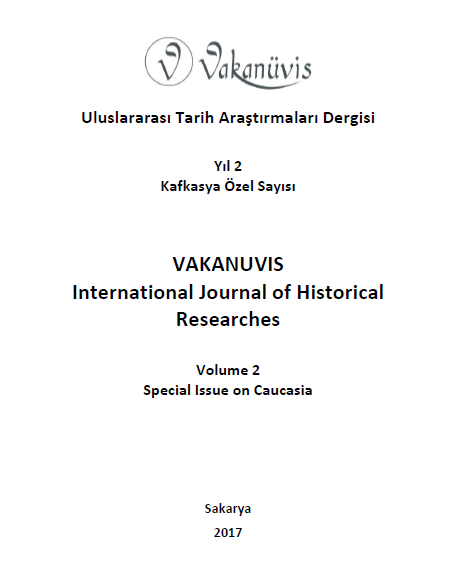Bolşevik İhtilali Sonrası İngiltere’nin Rusya ve Kafkasya Politikası
Britain's Russian and Caucasus Policy After the Bolshevik Revolution
Author(s): Mehmet OkurSubject(s): Political history, Government/Political systems, 18th Century, 19th Century, Pre-WW I & WW I (1900 -1919), The Ottoman Empire, Geopolitics
Published by: Serkan YAZICI
Keywords: Britain/British; Russian/Russia; Caucasus; Turkey; Bolshevik;
Summary/Abstract: Britain’s Russian and Caucasus policy followed a different course before and during the First World War. Undoubtedly, during these political seesaws, British colonialism in India and interests in the Persian Gulf played an important role. As it is known, from the 18th century towards the end of 19th century, Britain supported the Ottoman Empire against Russia for about a hundred years, but she abandoned this policy when Germany emerged as a new power and had close relations with Istanbul. At the beginning of the twentieth century, increasing German influence on the Ottoman Empire carried Britain to a destiny union with Russia, once inexplicable her enemy, even to make a secret deal that shared the Ottoman geography, ranging from the Bosphorus to the Caucasus, from the Mediterranean to the Persian Gulf. However, deciphering this agreement by the Bolsheviks who took over the administration in Russia in October 1917, and Russia’s withdrawal from the war turned this state into an enemy state from the allied one. The signing of Mondros Armistice by the Ottoman Empire gave Britain the opportunity to open up to the Caucasus geography and to control the region by using various elements there. The purpose of the Britain was to establish a security zone for the Middle East and India, starting from the Black Sea and taking control of the line extending from the Caucasus to the Caspian Sea, Iran and Afghanistan. The political structure in the Caucasus against the Bolsheviks and Turks was of great importance for the purpose of the UK.
Journal: Vakanüvis- Uluslararası Tarih Araştırmaları Dergisi
- Issue Year: 2/2017
- Issue No: Spec.issue
- Page Range: 393-416
- Page Count: 24
- Language: Turkish

